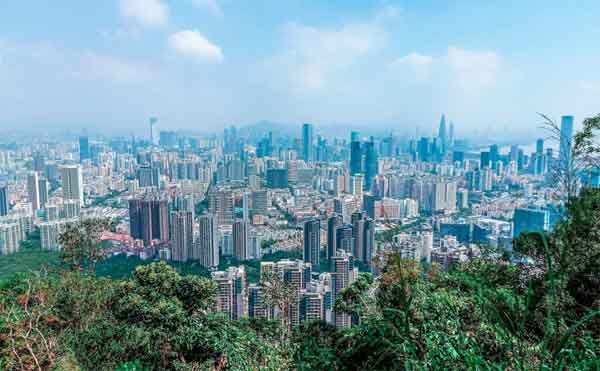Researching Your Options
When deciding to live and work abroad in China, it’s important to do your research on different cities to find the right fit. While major cities like Beijing and Shanghai are popular choices due to their strong expat communities and job opportunities, they can also be polluted, crowded and expensive. Taking the time to learn about other mid-sized cities with their own distinctive characteristics can lead to a more enjoyable experience. Here are some tips for selecting a Chinese city that matches your interests and lifestyle.
Living Environment, Lifestyle and Culture
In addition to job availability, consider factors like climate, pollution levels, living costs, pace of life and cultural offerings. Northern cities like Beijing experience harsh winters while southern areas like Guangzhou have a more tropical climate. Coastal cities near mountains like Xiamen offer scenic landscapes and mild weather. For a more laidback lifestyle, focus on historical cities in western China like Chengdu known for its unique Sichuan cuisine and pandas. Research regional cultures, customs and languages to find a place you’ll feel most comfortable.

Career Opportunities in Your Field
Major cities unsurprisingly have the largest job markets but also more competition. Meanwhile, second-tier cities actively recruit foreign professionals and may have niche opportunities. For example, Dalian has a thriving tech industry while Qingdao is strong in manufacturing. Universities across China regularly hire foreign language teachers. Consider career websites, expat forums and local international schools/universities to scout possible positions beforehand. Having a job secured makes relocating less risky.
Support Systems for Expats
Living abroad comes with adjustments, so access to support networks is beneficial. Tier 1 cities attract sizable expat populations and multilingual medical/logistical services. However, medium-sized cities are increasingly global too. Check online resources for information on international communities, meetups, religious organizations and multi-lingual medical care available where you may settle. Having basic structures in place helps smooth the transition process.
Evaluating Top Choices
With preliminary research completed, focus on several potential cities that align with your preferences. Consider visiting if possible to experience each location firsthand:
Xiamen - Chinese ‘Mediterranean’ Coastal City
Xiamen lives up to its nickname as the ‘Chinese Mediterranean’ with a laidback island vibe and mild subtropical weather year-round. Palm-lined streets, parks and beaches give it a relaxed feel. Known for fresh seafood, Xiamen also has a thriving expat population and maintains close business ties to Southeast Asia and beyond. The scenic landscape, friendly locals and business opportunities make it appeal to many long-term residents.
Chengdu - Capital of Sichuan Province in Southwest China
Chengdu’s picturesque mountains, tea plantations and ancient temples provide a welcome escape from crowded eastern metropolises. Its heritage as a stop on the Silk Road is reflected in the diverse regional cuisines like Mapo Tofu and Sichuan hotpot. The capital of Sichuan province has a thriving international community and lower living costs than other Tier 1 cities. It’s a top choice for those seeking a more laidback atmosphere amidst natural scenery.
Qingdao - Coastal City Famous for Beer and German Heritage
Qingdao enjoys coastal attractions like Xiamen without the tropical heat. Influenced by its history as a former German colony, Qingdao retains charming Bavarian-style buildings and beaches. Home to the country’s most popular beer brand, this picturesque city is great for outdoor activities and historical sites. The industrial economy supports career growth while affordable housing and mild climate draws overseas residents.
Relocating and Getting Settled
For those that decided on a Chinese city to call home, preparation is key. Find affordable, furnished housing near international schools and healthcare through agencies and sites geared for expats. Transfer necessary ID documents and obtain the appropriate visa, residence permit and credentials for your occupation.
Once settled, prioritize learning basic Mandarin for daily tasks and cultural immersion. Connecting with international communities helps meet friends while acclimating. With time and experience, you’ll come to appreciate your chosen city in China with all its rewards and challenges - an experience that will stay with you forever. Whether the bustling metropolitan lifestyle or a more relaxed seaside setting, different regions of China each have their own allure for international residents in search of new adventures abroad.

 The Best Times and Places to Visit in Jiangxi Province, China
The Best Times and Places to Visit in Jiangxi Province, China